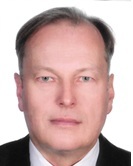Biography
Prof. Paweł Sachadyn completed his PhD dissertation at the Faculty of Chemistry of the Gdańsk University of Technology in 2000. Dr. Sachadyn conducted research in molecular biotechnology and molecular diagnostics, concentrated on the application of the MutS protein to analyse mutations and pre-mutational changes in DNA. From 2005 to 2008, as a fellow of the Foundation for Polish Science, he conducted studies on mammalian regeneration in the Wistar Institute in Philadelphia. In the following years, Dr. Sachadyn developed his research on the molecular basis of mammalian regeneration, focusing on its epigenetic aspects and the role of the nervous system.
In 2015, Dr. Sachadyn initiated the Laboratory for Regenerative Biotechnology at the Gdańsk University of Technology. The Laboratory aims to delineate novel regenerative medicine strategies based on the pharmacological activation of endogenous regenerative potential using innovative epigenetic therapies.
Title of presentation:
Epigenetic engineering of regeneration
Highlights:
- Each cell of the body contains complete information on the tissue structures and functions, available from conception throughout its entire life.
- Foetuses and neonates display impressive regenerative capabilities that decline in adults.
- Genome-wide methylome and transcriptome profiling point to the epigenetic mechanism underlying the loss of regenerative capabilities in adults.
- Epigenetic inhibitors can transiently reverse the developmental repression of regenerative genes, while regulatory molecules can enhance the activity of the derepressed genes.
- The concept of epigenetic pharmacological therapy presented here involves combining epigenetic inhibitors and regulators of gene expression to induce regenerative response in vivo
- The concept was successfully applied to promote the ear pinna regeneration in mice using a DNA demethylating agent, zebularine and retinoic acid as a transcriptional activator.
- Further development of this approach, termed epigenetic engineering, will involve the coordinated use of epigenetic inhibitors and regulatory molecules to induce and coordinate the regeneration process.
